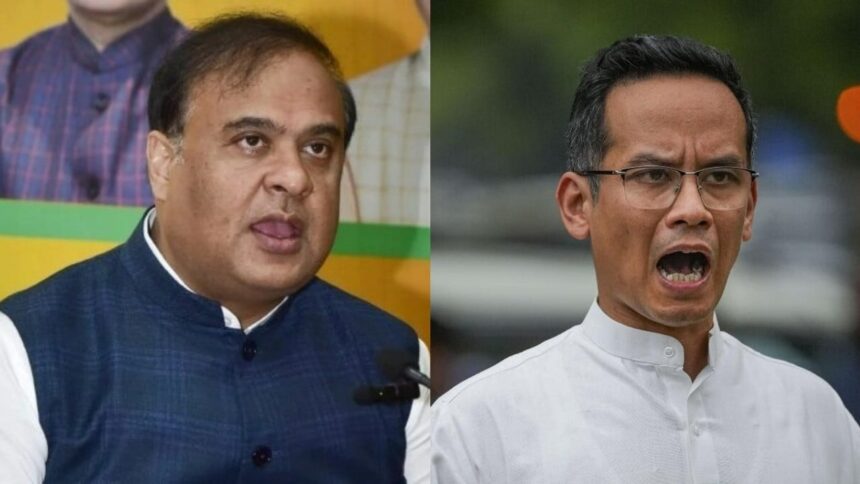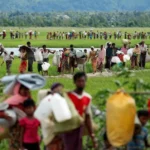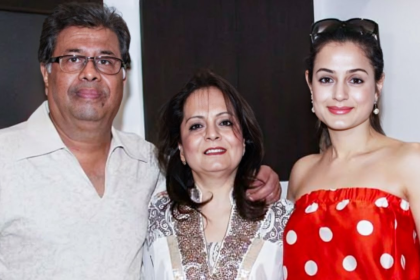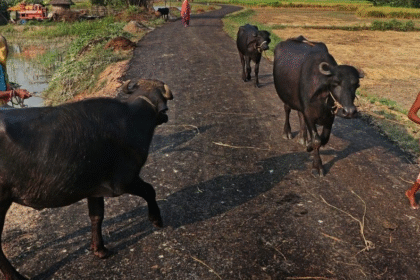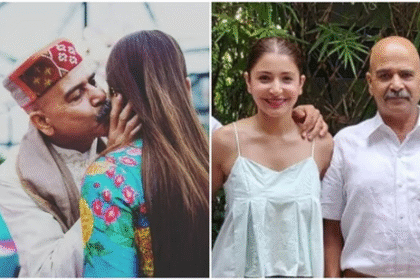Himanta Accuses Gaurav Gogoi Over NGO’s Alleged Pakistan Links and Gujarat Ties
New Delhi: On September 25, facing massive public pressure due to the sudden demise of celebrated singer and youth icon Zubeen Garg, the Himanta Biswa Sarma-led Assam government had announced the formation of a special investigation team (SIT) to probe the circumstances leading to his death by drowning in Singapore on September 19.
If the outcome of the investigation by this SIT of the Assam police will be closely monitored in the local media owing to a huge public clamour seeking ‘justice’ for Garg, the report of yet another SIT of the home department was in the state’s news-scape till early this month before disappearing abruptly.
The formation of that SIT was announced to the local media by chief minister Sarma in Guwahati on February 17, though not before a case – and a politically vicious one at that – was built for it and against a top leader of his BJP’s primary opponent in the state, the Congress.
Sarma had then questioned a visit to the Pakistan high commission way back in 2015 by Congress leader Gaurav Gogoi, who is also the deputy leader of opposition in the Lok Sabha, and suggested that his wife, UK-born Elizabeth Colburn Gogoi, had ‘questionable’ links to the Pakistani establishment due to her employment with an international NGO in that country.
Colburn had worked for some time in Pakistan for the NGO under a noted climate change expert from that country, Ali Tauqeer Sheikh.
This NGO – as per a 2016 UK filing – was managed by an ‘alliance’ of organisations that included Sheikh’s ‘LEAD Pakistan’ organisation. Sarma claimed this organisation is a “front” for the Pakistani Inter-Services Intelligence (ISI) agency. Thus, Colburn too was insinuated as having links with the spy agency.
In the run-up to the formation of that four-member SIT by the Assam police, which reports to Sarma as he is the state home minister too, the chief minister went to the extent of saying that Gogoi could have likely compromised national security.
The chief minister later gave a date to reporters for the submission of that SIT report – September 10. He said, “Sob fadil hobo (all will be revealed)” against Gogoi as he would provide concrete “proof” by then.
Curiously though, when September 10 finally arrived, there was silence from Sarma and the state BJP. All the chief minister did was put out a claim that it has “startling facts” that would be made public after they are discussed in a cabinet meeting in October.
An unusual development was that Prime Minister Narendra Modi’s poll speech at a rally in Mangaldoi earlier this month contained zero references to the SIT, even though he went to the extent of accusing the Congress of backing “infiltrators” and standing with the Pakistan army.
While the contents of the SIT report are still a secret, a look at the international NGO with which Colburn was associated then would perhaps throw some light on the BJP’s significant political pause.
Which NGO did Colburn work for then?
Colburn began working for the well-known Climate Development and Knowledge Network (CDKN) NGO in March 2011.
As per her work profile on CDKN’s website, she was handling the NGO’s work in India and Nepal; it was during that time she had reportedly met Gogoi in the United States and married him in 2013. Gogoi was then not in politics but was employed in the development sector.
According to the Congress MP, Colburn worked in Pakistan between 2011 and 2012-13 and he did go with her to the country once around that time.
Sheikh, who ran LEAD Pakistan, whom Sarma has suggested is linked with the ISI and against whom the state police had filed a case under the Unlawful Activities (Prevention) Act, had also served as CDKN’s Asia director.
CDKN’s website says its mission is “to improve the well-being of the most climate-affected people in the Global South, especially marginalised groups, through transformative climate-resilient action”. It works in partnership with “the public [meaning governments], civil society and private sectors to mobilise knowledge, leadership and capacity in the Global South from local to global levels.”
Back in February, an Assam cabinet resolution that Sarma read out to the media recalled Colburn and Sheikh’s involvement with CDKN and said: “The Assam cabinet notes its concerns regarding the explicit involvement of a Pakistani-based leader and other actor of a climate action group in the matters concerning India’s internal affairs, thereby raising serious questions on its actual intended operations.”
If one takes a cursory look at CDKN’s country-wise division of projects, one gets a sense that its work is spread across the continents. One of the projects the NGO has completed in the country was executed in Gujarat.
CDKN’s Gujarat connection
As per CDKN’s website, it had contributed to a heat wave-related project in Ahmedabad for the Gujarat government in 2013.
In 2010, Ahmedabad city had faced an unprecedented heat wave that contributed to the deaths of hundreds of people. This had pushed the then-state government led by Narendra Modi to think up a strategy to handle climate change-related deaths in Gujarat’s largest city.
Funding from CDKN was routed through an American climate change advocacy group, the Natural Resources Defense Council (NRDC), to carry out the groundwork and for the gaining of the required knowledge to unroll the project that also involved Ahmedabad Municipal Corporation, then under the BJP, and the Indian Institute of Public Health, Gandhinagar.
Prior to the 2015 edition of the Vibrant Gujarat summit, an initiative started by Modi as chief minister to showcase the ‘Gujarat model’ to the world, NRDC had attributed the implementation of the “landmark” Ahmedabad project – which it said was India’s first heat action plan – to a memorandum of understanding it had signed with the state government at a prior edition of the Vibrant Gujarat summit.
In 2016, Sheikh as CDKN’s Asia director had also highlighted in a presentation the project in Ahmedabad – where he said the number of heat-related preventable deaths went down from around 1,300 in 2010 to seven in 2015 – as an example for other cities in South Asia including Karachi in Pakistan.
In 2022, a PTI report on the project had stated: “An estimated 1,190 deaths have been avoided each year since its launch in 2013. Heat action plans have since expanded to over 23 states and more than 100 cities and districts through the National Disaster Management Authority”.
Who funds CDKN?
CDKN’s funders, as per its website, are the Ministry of Foreign Affairs of the Netherlands and Canada’s International Development Research Centre, while its partners are the South South North North non-profit, the Futuro Latinoamericano non-profit and ICLEI South Asia.
Active in over 125 countries, ICLEI or ‘Local Governments for Sustainability’, as per its website, is a global network working with “more than 2,500 local and regional governments” that are “committed to sustainable urban development”.
ICLEI’s South Asia segment works in partnership with CDKN. It is said to have received funding from Left-leaning US billionaire and philanthropist George Soros’s Open Society Foundations, although it is not confirmed.
In 2009 though, two years before the Gujarat government had formally worked with the American NGO NRDC, Soros had pledged to invest more than $1 billion towards clean technology to tackle climate change.
On the day the Sarma government had announced the SIT to probe into Gogoi and his wife’s ‘Pakistan links’ in light of her employment with CDKN then, BJP leader Sudhanshu Mittal had however alleged that they have a “connection” with Soros’s Open Society Foundation and called it “worrying”.
Also Read: Rohingya Plead with UN: Where Is Justice Amid Myanmar Violence and Aid Cuts?


